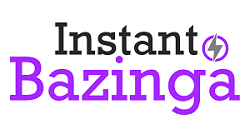Whether you’re a single owner or a corporation, insurance plans that cover general commercial liability (CGL) may be very beneficial to your company. CGL insurance protects your company against third-party litigation and claims. The advantages and components of typical CGL insurance coverage are discussed in this article.
What Is CGL Insurance, And How Does It Work?
CGL coverage is typically included as part of a larger insurance package. The commercial general liability insurance coverage protects people or businesses that qualify as “insureds” under an insurance policy against certain losses arising from legal responsibility for third-party injuries or damages.
A typical CGL insurance provides comprehensive liability coverage for the following risks:
Hazards on the premises Accidental “bodily harm” and “property damage” resulting from an action or condition on insured “premises” are typically covered under CGL insurance. The words “bodily harm,” “property damage,” and “premises” are all specified in detail by an insurance policy. CGL coverage, for example, will cover a company’s liability and defence expenses in the event of a slip-and-fall accident.
Operational risks A typical commercial general liability insurance will cover physical harm and property damage resulting from a company’s activities. CGL insurance, for example, will cover third-party injuries and property damage resulting from a company’s construction operations.
Hazards associated with products. A basic CGL insurance will cover physical injury and property damage caused by a company’s goods, whether they are produced, marketed, or distributed. Certain product liability lawsuits are typically covered by this.
Hazards associated with completed activities. CGL insurance usually covers bodily harm and property damage that results from a business’s finished activities.
What Are The Exclusions To The CGL Policies?
Although CGL insurance offers extensive coverage for some risks, it is restricted by the policy’s limitations. As a result, claims and lawsuits alleging facts that fall within one of the exclusions are not covered.
The following are common exclusions from a typical CGL policy:
Injuries that were expected or planned. A business’s liability for bodily harm or property damage is not covered. In order to prevent “moral hazard,” a scenario in which insurance firms bear financial liability for deliberate wrongdoing, California law bans such coverage.
Liability under a contract
Liability that a company chooses to take on as part of a contract isn’t covered.
Liability for alcoholic beverages
To prevent moral hazards, public policy forbids coverage for alcohol-related injuries.
Compensation claims for employees
Workers’ compensation claims are usually covered under a separate insurance arrangement, therefore a CGL policy will not cover them at the same time.
Employer’s responsibility
Liability arising from the breach or non-compliance with labour or employment laws is usually covered by a separate insurance policy. As a result, CGL insurance will not cover such risks.
Aircraft, cars, and boats are all examples of transportation. Separate insurance plans exist to cover accidents and damages caused by the ownership, usage, operation, and maintenance of aeroplanes, cars, and boats.
Product deterioration
Because such risks arise from business hazards, CGL insurance does not cover damage to a company’s goods. Such insurance would act as a guarantee for the company’s goods.
Work is harmed
Damage resulting from a business’s or its subcontractors’ faulty work is not covered since doing so would imply a guarantee for the business’s or subcontractor’s work sufficiency.
Recalls of products
A typical CGL insurance does not cover damages for losses and costs incurred by a company as a result of a preventive recall of its product, labour, or damaged property. Damage that has already happened, on the other hand, is generally protected under California law.
Injuries to people and businesses
Defamation, invasion of privacy, illegal detainer, and trademark infringement claims and litigation are expressly protected by a separate policy for which companies may pay an additional premium.




